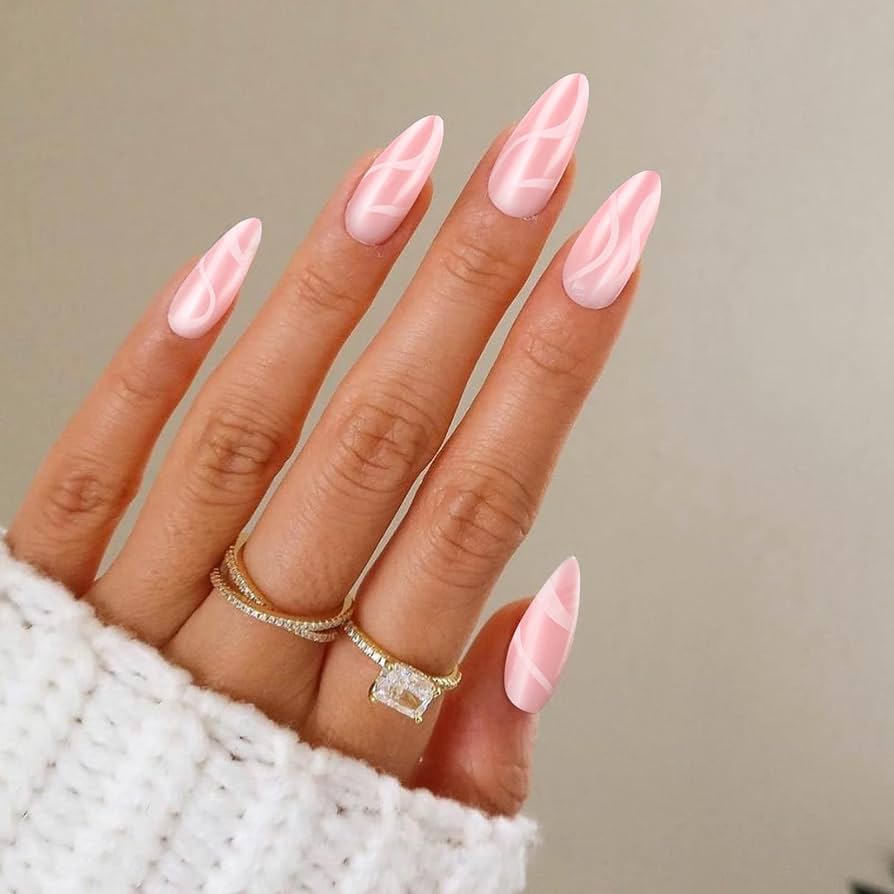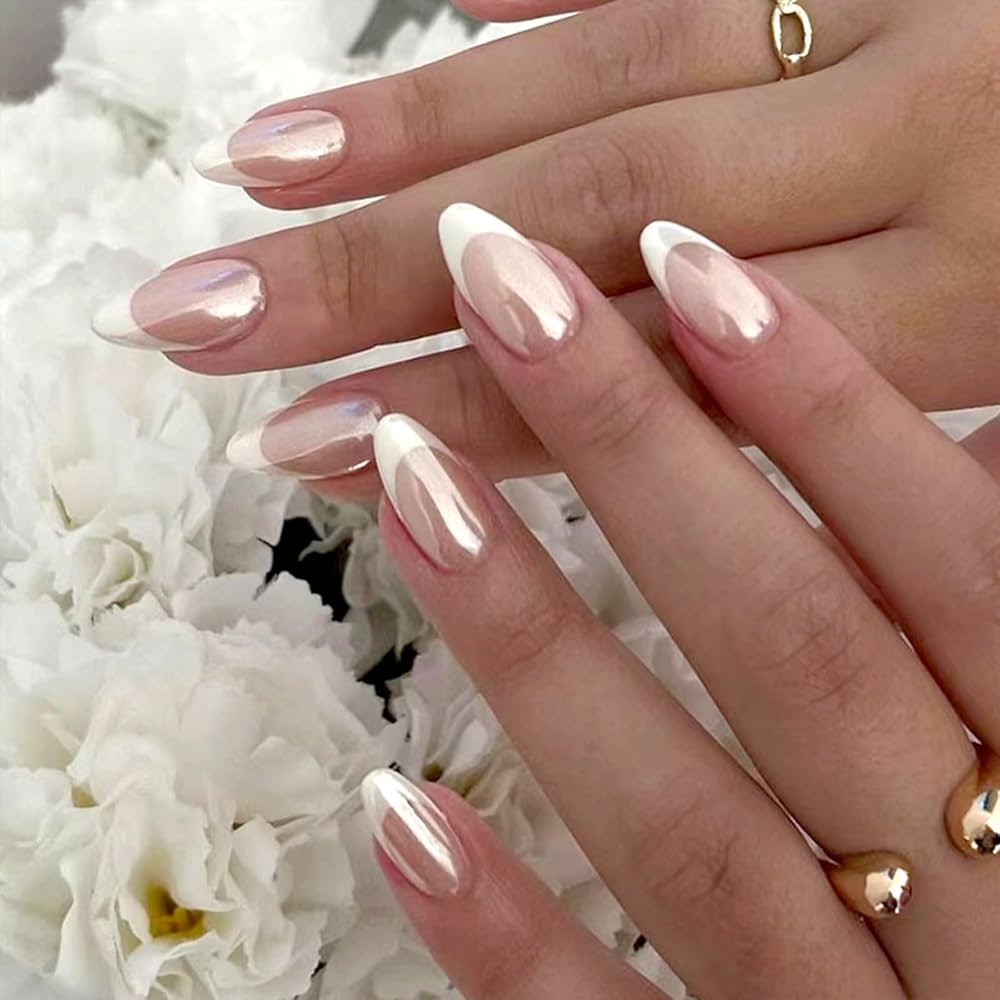Physical Address
304 North Cardinal St.
Dorchester Center, MA 02124
Physical Address
304 North Cardinal St.
Dorchester Center, MA 02124

Welcome to the world of non-acrylic nails, where beauty meets health and sustainability.
The Need for Non-Acrylic Nail Alternatives
Traditional acrylic nails, while popular, come with setbacks. Many seek alternatives for a safer manicure experience.
Acrylics involve harsh chemicals and can weaken nails over time, prompting the search for gentler options.
The Health and Environmental Concerns with Acrylics
Acrylics emit potent fumes, raising health concerns for users and technicians alike.
The aggressive filing required can damage natural nails, causing people to explore other solutions.
Moreover, the environmental impact of acrylic disposal underscores the need for more eco-friendly nail care choices.

Hard gel nails, also known as builder gel, have become a popular choice.
Advantages of Using Hard Gel for Nail Enhancements
Builder gel offers many benefits compared to traditional acrylics. The key advantages include:
Builder gel serves as a protective overlay, which benefits those with weak nails.
The Application and Removal Process
Applying hard gel requires skill but is simpler than acrylics. Here’s a brief overview:
Removal varies depending on the gel type. Some soak off with acetone, others need filing first. Care must be taken to avoid nail damage during removal. Pro tip: Protect skin with sunscreen when using a nail lamp for curing.
Combining the Best of Acrylics and Gel Polish
Polygel is a fusion of acrylic powder and gel polish, offering strength and flexibility.
It has a lightweight texture and is non-toxic, often including botanical compounds.
You can use Polygel right from the tube, creating hassle-free application without harsh odors.
Colors in Polygel are diverse, sometimes eliminating the need for an extra polish coat.
With Polygel, nails appear robust, feel natural, and are easier to manage than traditional acrylics.
How to Apply and Remove Polygel
Applying Polygel involves a few steps:
Polygel removal is straightforward, though time patience is needed:
By following these procedures, you can enjoy Polygel nails while keeping your natural nails healthy.

Dip powder nails offer an innovative way to achieve vibrant nail color without harsh chemicals. This appealing alternative presents a more user-friendly, healthier approach to nail enhancements.
The Basics of Dip Powder Manicure
Dip powder manicures start with a base coat on clean, prepped nails. Next, nails are dipped into colored powder, then sealed with a topcoat. No UV lamp is needed, which makes the process simpler and less harmful to the skin.
Dip nails can last up to four weeks, rivaling the longevity of traditional manicures. The process is nearly odorless, unlike acrylics, making it a comfortable salon experience. Also, dip powders come in a range of stunning colors and textures to suit any style.
Comparing Dip Powder to Traditional Acrylics
When we compare dip powder to acrylics, several benefits of dip powder become clear:
Unlike acrylics, the dip powder methodology avoids strong fumes, making it a safer option for nail health. However, it’s essential to occasionally let nails rest between applications to maintain their strength and integrity.
Soft gels bring ease and durability to manicures. They’re a great non acrylic nails option for those who value simplicity alongside lasting beauty.
The Simplicity and Longevity of Soft Gels
Soft gels are notably simple to apply and can last up to four weeks. These nails mimic the natural look, adding to their appeal. Their light and thin composition make them comfortable to wear, providing a break from the heavy feel of acrylics.
Methods for Applying and Removing Soft Gel Nails
Application involves a primer, the soft gel, then curing with a nail lamp. Removal is gentle, with just a short acetone soak needed. This process protects the underlying natural nail from damage.

For a quick and simple nail makeover, press-on nails are your go-to solution. They don’t require complex tools or procedures, making them convenient for nail enthusiasts at all levels.
The Ease and Variety of Press-On Extensions
Press-on nails could not be easier to use. They come in a multitude of designs, ready to fit every mood and event. The set typically includes various sizes to ensure you find the perfect fit for each finger. With the adhesives provided, either double-sided stickers or glue, a new manicure is just minutes away. You can even paint over most press-ons to customize your look.
Tips for Applying and Maintaining Press-Ons
To apply press-ons, clean and dry your nails first. Pick the right size for each nail, and use the adhesive to secure them. Press firmly for a few seconds. To make them last, avoid soaking hands in water for too long. When it’s time to remove them, soaking in warm, soapy water usually frees them up without much fuss. Always treat your natural nails gently to keep them healthy under the press-ons.
For those seeking non acrylic nails options that are durable and stylish, gel nails and Gel-X extensions stand out.
Gel nails have earned their spot as a favorite in the manicure world. Their glossy finish and the ability to withstand daily wear set them apart. Gel nails last two to three weeks with no chipping.
With gel, the process is key:
Removal needs care and time. Soaking the nails in acetone dissolves the polish. Then, wiping it off leaves the natural nail ready for the next manicure.
Avoiding back-to-back gel manicures lets the nails rest and recover.
Gel-X nail extensions serve as a healthier alternative to acrylics. These extensions look natural and feel lightweight.
Gel-X involves:
They are strong, can last up to three weeks, and do not need gel polish.
Setting aside time for application is necessary. Prep for at least an hour and a half to fit and cure Gel-X nails.

After discussing various non-acrylic nails options, it’s clear that safer, healthier alternatives exist.
Selecting the best non-acrylic nail option depends on your needs:
Think about the nail length you want, the time you can commit to maintenance, and your budget.
Keeping nails healthy involves a few key practices:
By choosing non acrylic nails and caring for your natural nails, you ensure lasting nail health and beauty.
Non-acrylic nails often result in less damage to the natural nail bed. Unlike acrylics, which can weaken the nails, natural options like gel or dip powder maintain nail integrity. Additionally, they tend to require less maintenance, resulting in a more straightforward and less time-consuming routine. This simplicity attracts individuals looking for convenience without sacrificing style.
Moreover, non-acrylic nails offer impressive design flexibility. From classic manicures to trendy designs, the options remain vast. Embellishments like nail art, crystals, or decals can elevate any style. Consequently, this versatility allows for personal expression while catering to various occasions.